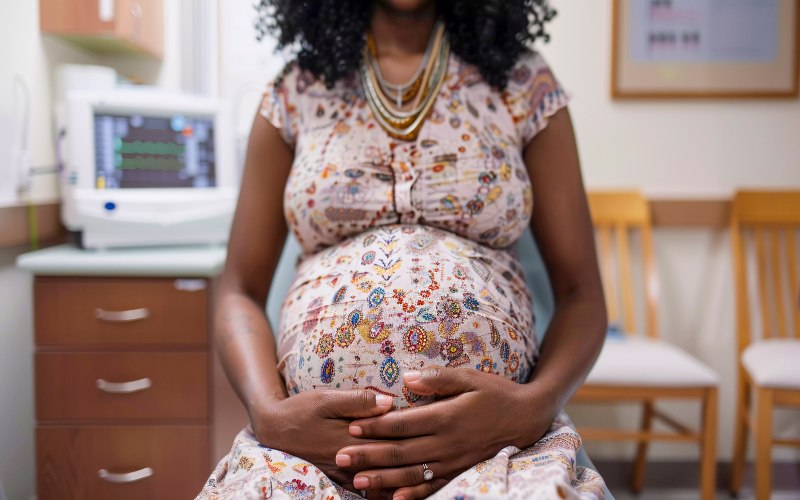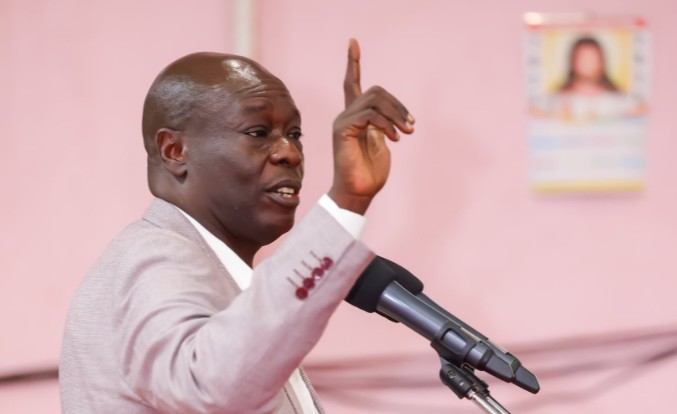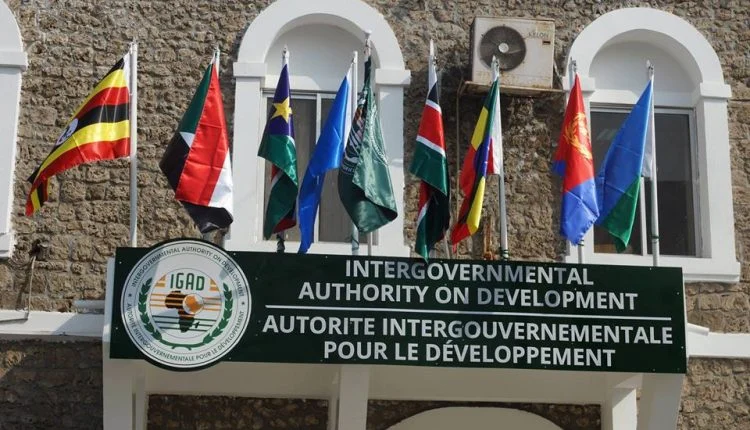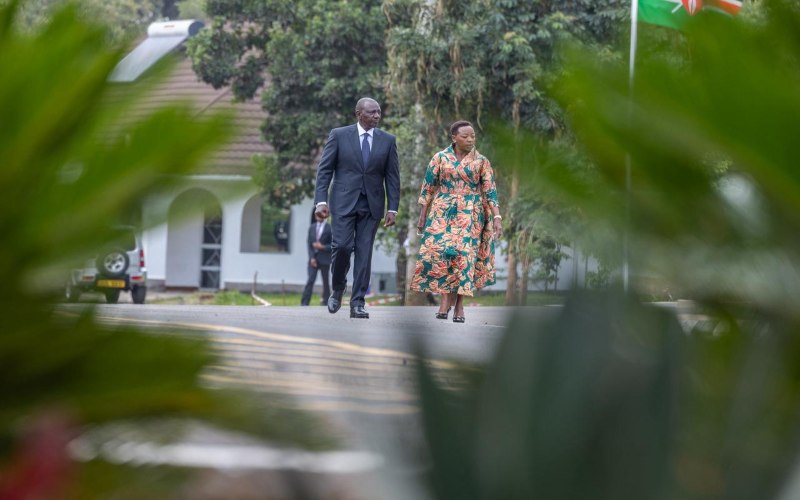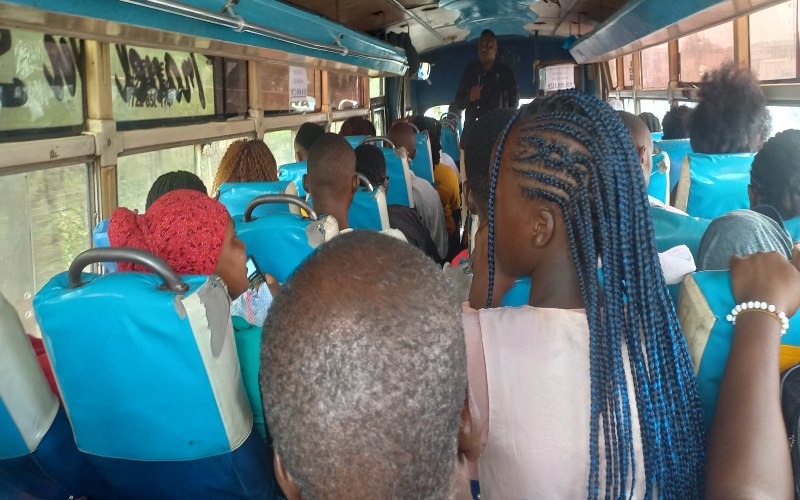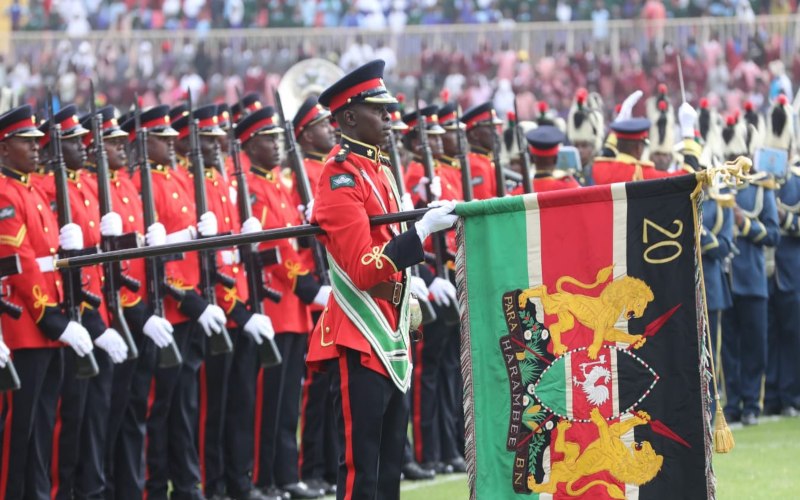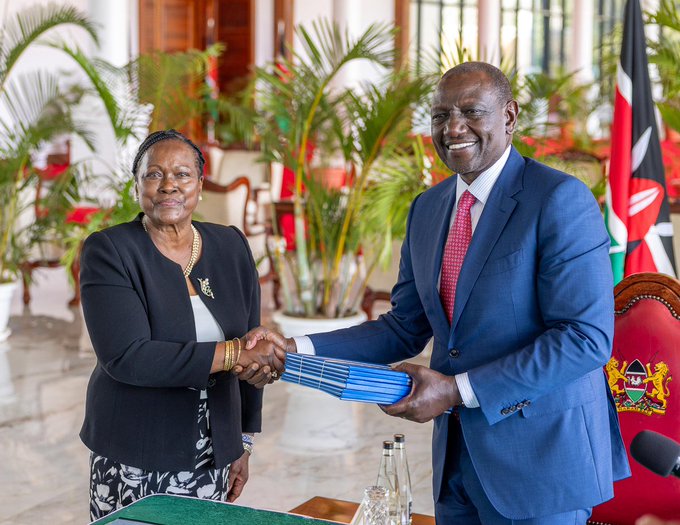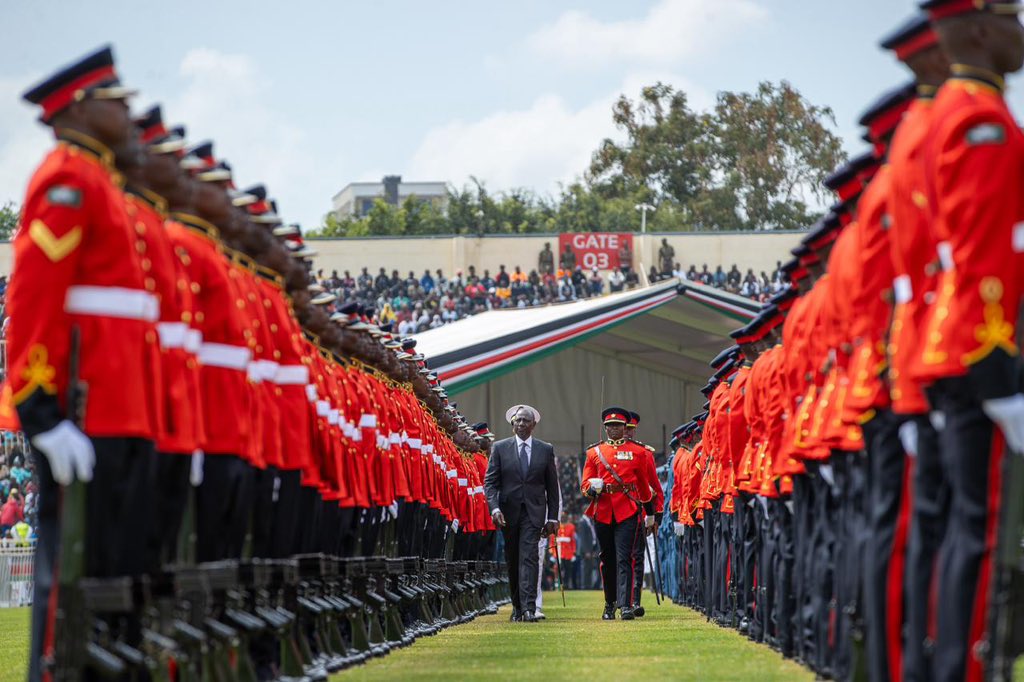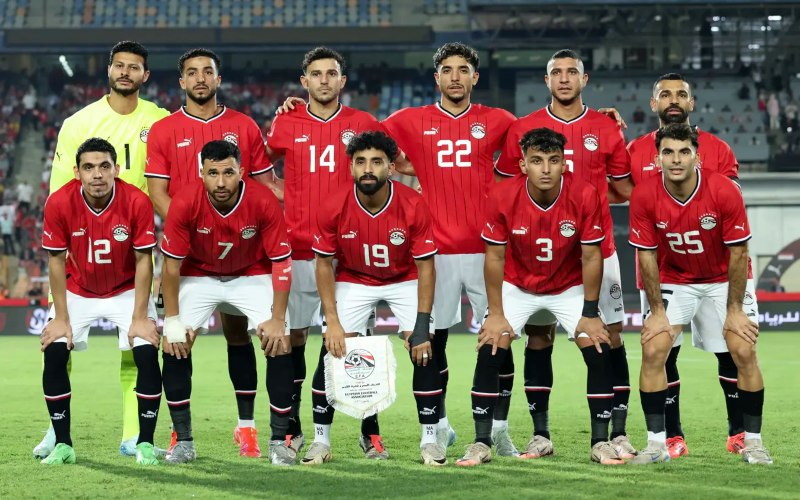Why donkeys are the unsung heroes in Ethiopia’s humanitarian crisis
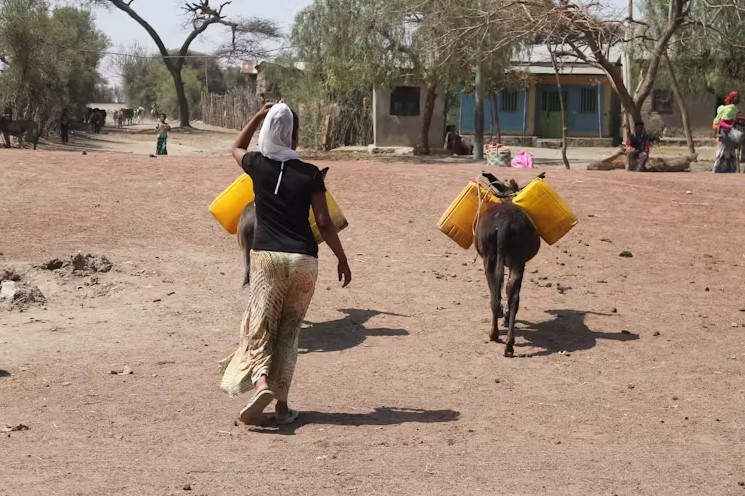
For overseas aid to be deployed most effectively (reaching the goal of supporting the lives of women and children), it should be extended to support the care of donkeys.
Conflict and drought in the Tigray region of northern Ethiopia have triggered a humanitarian crisis. The Ethiopian government says 16 million people across the country are facing food shortages, with almost half of those suffering emergency or severe levels of food insecurity.
In response to the crisis, the UK has announced £100 million in overseas development aid for essential healthcare services. More than three million Ethiopians, including vulnerable women and children, will receive lifesaving help through the programme.
More To Read
- Peace on paper, pain in reality: Tigray’s forgotten suffering, struggle for justice
- Technology of freedom, risk of violence: Digital divide facing women in post-war Tigray
- ONLF accuses Ethiopia of breaching 2018 peace deal as Somali Region tensions rise
- TPLF warns Ethiopian federal government failure to implement Pretoria deal threatens peace
- EU countries urge resumption of dialogue between Ethiopian government, TPLF
- Hailstorms, floods devastate farmlands in Tigray, Amhara regions
For overseas aid to be deployed most effectively (reaching the goal of supporting the lives of women and children), it should be extended to support the care of donkeys.
In Ethiopia, donkeys are unrecognised humanitarian workers who provide vital support through their labour to ensure the survival of people, especially vulnerable women and children. But donkeys in Ethiopia are often overlooked, poorly cared for and overworked because of poverty and a constant reliance on their labour.
The strains of poverty, subsistence work and the effects of conflict are not only experienced by humans. Animals work for and with people living in these circumstances and risk their lives in doing so.
Why donkeys matter
The war formally ended in November 2022. But the Tigray region remains in ruins and 1 million people have been displaced from northern Ethiopia. Donkeys are key providers of aid to displaced families by enabling access to water, foodstuffs and firewood that people would otherwise not be able to reach on foot.
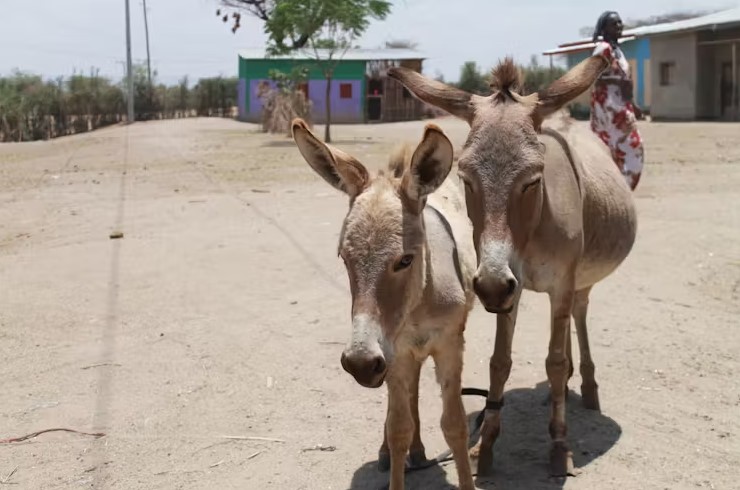 A jenny (female donkey) and her foal stand near a group of homes in a rural village in central Ethiopia. (Photo: Martha Geiger, CC BY-NC-SA/ The Conversation)
A jenny (female donkey) and her foal stand near a group of homes in a rural village in central Ethiopia. (Photo: Martha Geiger, CC BY-NC-SA/ The Conversation)
But many donkeys in Ethiopia die prematurely due to a lack of food and water, and because of the enormous strain their labour places on their bodies. Research from 2016 found that donkeys have a working life of only four to six years in Ethiopia. In contrast, donkeys can have working lives of up to 30 years where welfare standards are higher.
When a donkey dies, their human co-workers are left in need and without support. My own research, which was published in July 2023, has shown that women in rural areas of Ethiopia (where 80 per cent of the country’s population live) are dependent upon and most affected by the loss of a donkey.
Women in central Ethiopia report that an enormous physical burden falls on them to carry livelihood materials on their backs and shoulders for long distances if they don’t have donkeys to work with.
Low status
My more recent research has revealed that donkeys, along with their women co-workers, are at the bottom of the social hierarchy. Donkeys are associated with drudgery and women’s work, so a socio-cultural norm holds that the two groups are “the same”.
In fact, there are numerous common Ethiopian proverbs that compare women with donkeys. According to one proverb: “Women are commonly beaten by their husbands, but they are staying with their husbands to raise their children. And donkeys are often beaten by their owners, but they will not run away from their owners.”
Another is that: “The least of animals is the donkey, and the least of human beings is a woman. They are doing as they have been told by men.” This equivalency reinforces the marginalisation and subjugation of both groups, manifesting in domestic violence towards them.
A huge number of Ethiopian women have suffered physical and mental injuries during the war and the crisis that has followed. Health experts estimate that between 40 per cent and 45 per cent of women have suffered gender-based violence during the conflict.
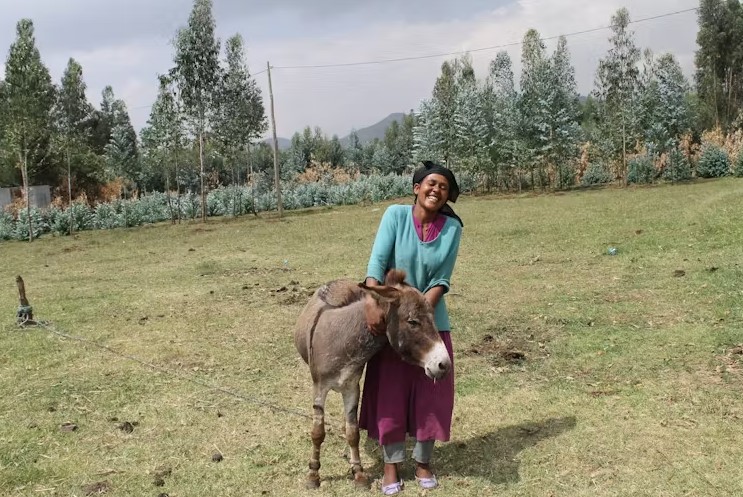 A rural woman stands with her donkey co-worker as she prepares for the working day ahead. (Photo: Martha Geiger, CC BY-NC-SA/ The Conversation)
A rural woman stands with her donkey co-worker as she prepares for the working day ahead. (Photo: Martha Geiger, CC BY-NC-SA/ The Conversation)
Other studies report that more than one-third of women in Ethiopia experience gender-based violence in their lifetime. In reality, these figures are probably even higher owing to under-reporting because of a lack of access to healthcare services and the fear of stigmatisation.
My research on the welfare of donkeys in Ethiopia has also recorded instances of donkeys being hit by their human co-workers while working. The majority of donkey owners reported feeling justified in hitting their donkeys if they refuse to move forward or comply with human requests of them.
Recognising their work
In light of my findings, and amid reports of escalating violence against women in the region, humanitarian programmes aimed at enhancing the status of women and dismantling oppressive systems should also include wellbeing support to their donkeys.
Addressing the needs of both women and donkeys through protection, healthcare and aid can help combat the normalisation of violence against both groups. This will convey the importance of both women and donkeys to Ethiopian society.
By ignoring the humanitarian labour of donkeys and their contribution to human wellbeing, we risk further exploiting and marginalising both donkeys and the millions of women and children who depend upon them for basic subsistence support.
Story by Martha Geiger, a PhD Candidate in Sociology at the University of Warwick.
Top Stories Today
